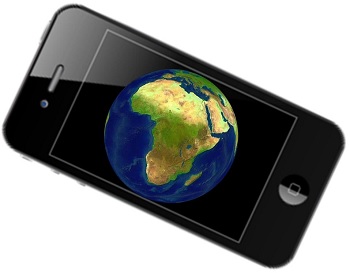A new survey has revealed that these device users are becoming annoyed with the advertising they are receiving.
The research firm, Ifop, from France, has released the results of a study that they conducted in South Africa and Algeria, which revealed that consumers in those countries are not appreciating the types of mobile marketing that they are receiving from brands and companies.
They discovered that 80 percent of consumers in those countries were annoyed by unsolicited messages they received.
This reveals that the mobile marketing strategies being used by companies and brands targeting smartphone using consumers in Africa may not be nearly as effective as is hoped. Instead of engaging consumers, they are managing to annoy them, instead. Moreover, the research also showed that the same percentage of consumers could be won back by those brands and companies if they change their efforts and implement practices that will enhance the consumer engagement that is promoted by their ads.
This mobile marketing study was conducted by Ifop on behalf of Gemalto using face to face interviews.
 The mobile advertising research involved the participation of adults over the age of 18 years. There were 800 respondents in Nigeria and South Africa. The purpose of the study was to better determine the opinions of consumers with regards to the types of marketing to which they have been exposed over their smartphones. It sought to pinpoint and examine the negative perceptions that had been formed about this type of advertising in those two parts of Africa. It was conducted back in July 2014.
The mobile advertising research involved the participation of adults over the age of 18 years. There were 800 respondents in Nigeria and South Africa. The purpose of the study was to better determine the opinions of consumers with regards to the types of marketing to which they have been exposed over their smartphones. It sought to pinpoint and examine the negative perceptions that had been formed about this type of advertising in those two parts of Africa. It was conducted back in July 2014.
The study showed that Nigerian and South African consumers had similar desires when it comes to mobile ads and promotions. Consumers in both of those nations have shown that they would prefer to have some control over the types and natures of the ads that they receive over their smartphones and tablets.
It showed that 83 percent of the participants in the study believe that mobile marketing should be an opt-in basis, only. Moreover, 90 percent would want to be able to identify the company or brand from which they receive these messages and communications.

